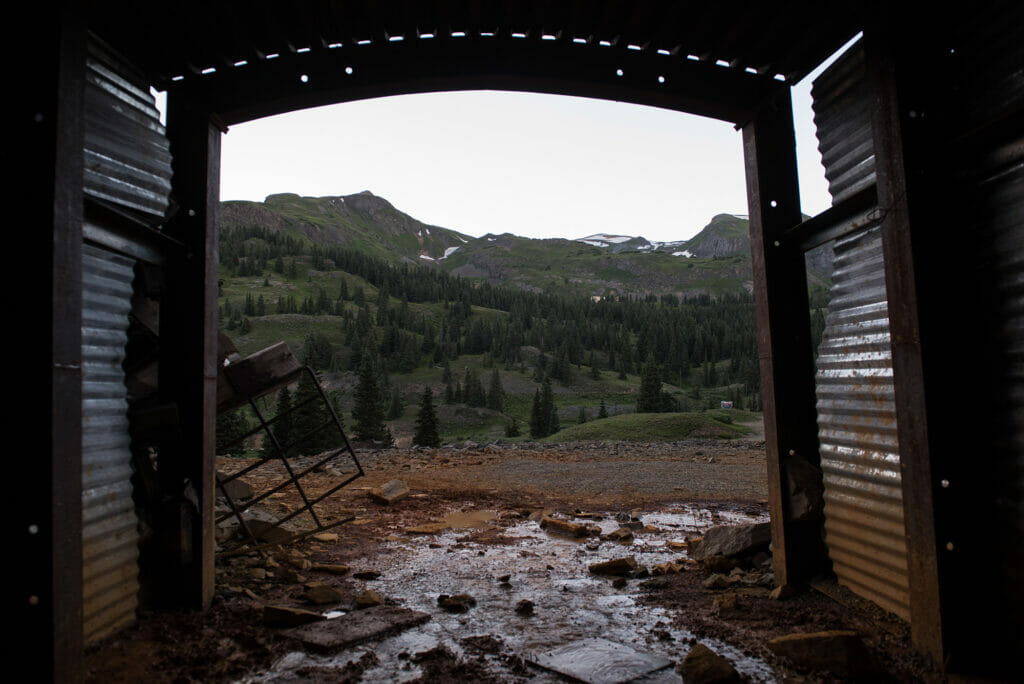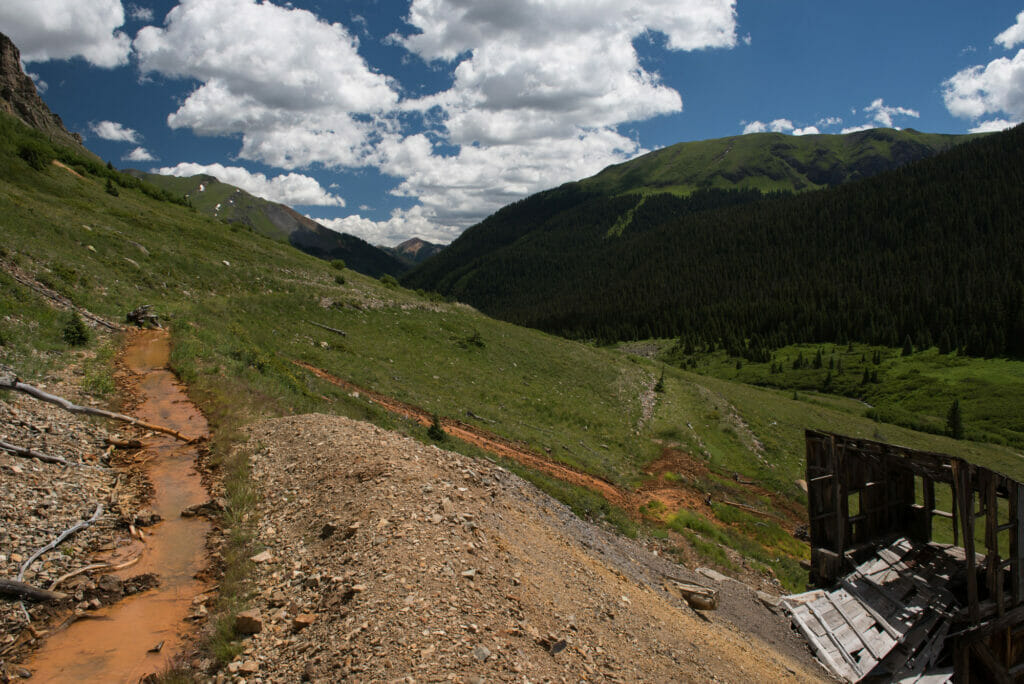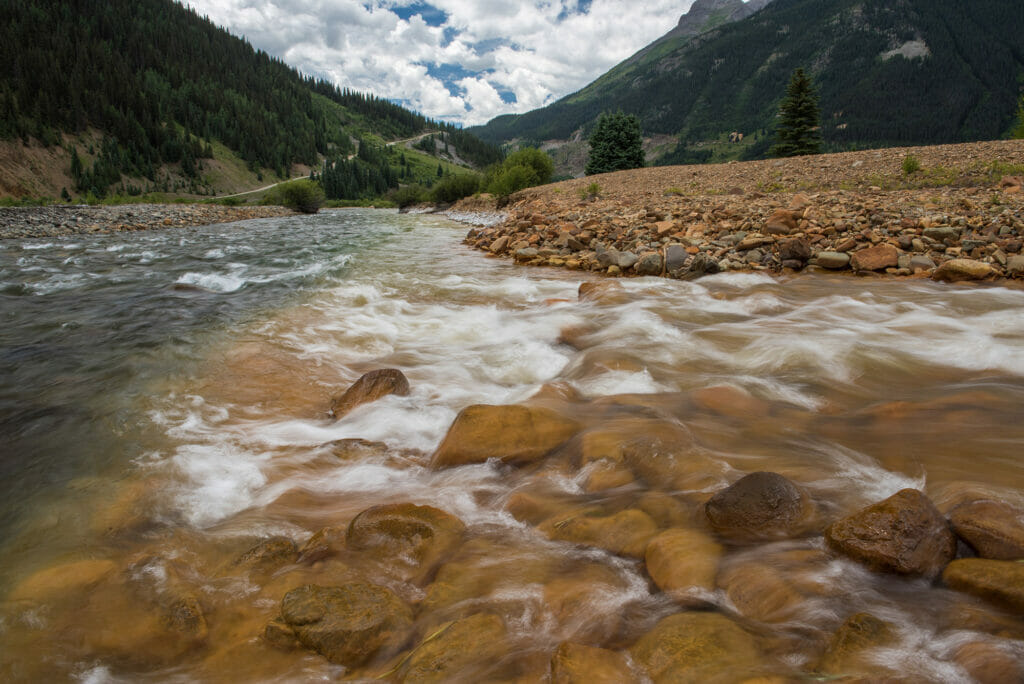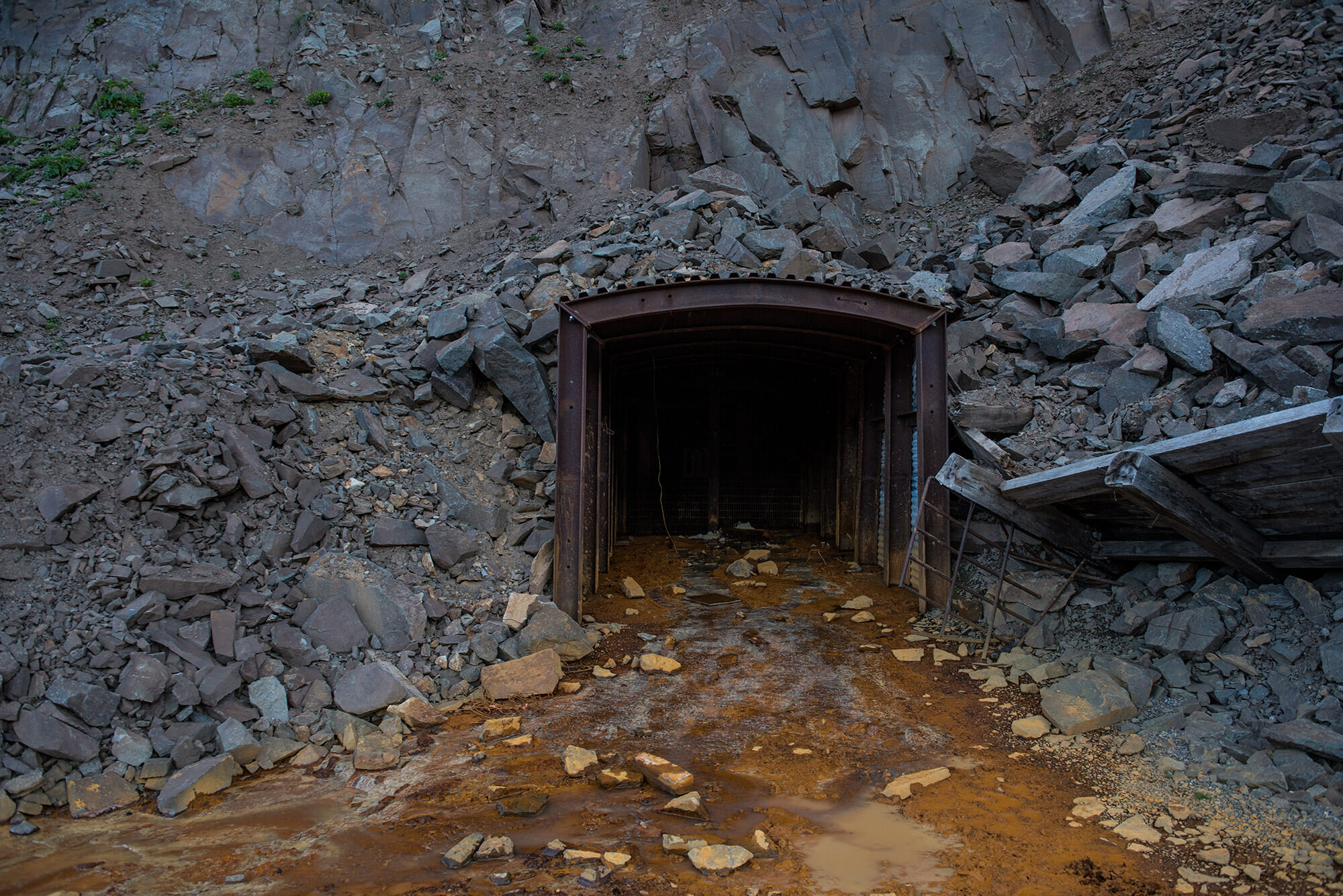Good Samaritan legislation and mining reform recommendations released this week to spur abandoned mine cleanup.
With an estimated half a million abandoned mines scattered across the West, many in remote, hard-to-reach places, the job of cleaning them up seems almost insurmountable. Big, hard things are not accomplished in one fell swoop, though, and just as many of those old mines were dug with one swing of the pick and one charge of dynamite at a time, so too must their cleanup start with one mine at a time.
Unfortunately, even beginning this work is hampered by the twin troubles of a lack of funding and a regulatory scheme that treats would-be Good Samaritans who want to clean up the mines as if they were the original polluters.
The Clean Water Act, ironically, presents a hurdle to cleaning up streams impaired by acid mine drainage by holding groups like Trout Unlimited or state remediation agencies to the same rigorous clean-up criteria for point source pollution that the original polluter would be held to. Those old miners are long gone and as a result, rather than conduct cost-effective cleanup of these often small and remote mine waste drainages that reduce the pollution impairing coldwater streams, these mines remain in their current, polluting state because to attempt any cleanup could subject the would-be Good Samaritans to millions in costs and potential fines and perpetual liability.

This week, solutions to breach both barriers were proposed through introduction of bipartisan Good Samaritan legislation and recommendations from the Biden administration on reform to the 1872 Mining law that includes adding a royalty payment for minerals extracted by private companies from public lands. This royalty would then be used to fund the cleanup of mines that were long ago abandoned by now-absentee mining companies, some since that 1872 law was originally passed.
On Tuesday, September 12, the Biden Administration released a new report, Recommendations to Improve Mining on Public Lands, from the Interagency Working Group on Mining Reform. Recommendations in the report include a royalty on hardrock minerals that helps fund abandoned mine cleanups, improving engagement with communities and Tribes, providing land management agencies with greater discretion to determine where and how mining occurs on public lands, and a more consistent permitting process for mining on public lands.
“Increasing the supply of critical minerals necessary to speed the conversion to renewable energy is going to result in more domestic mining,” said Chris Wood, President and CEO of Trout Unlimited. “But to allow that expansion to occur under the framework of a 150-year-old mining law is akin to building a new home on a foundation of rotting wood. We need a 21st Century mining law that provides certainty for not only the mining industry, but also certainty for communities, tribes and the health of our lands and waters. We look forward to working with all stakeholders to strike this balance.”
Additionally, the report urged Congress to pass ‘Good Samaritan’ legislation to encourage abandoned mine cleanups from those that had nothing to do with the creation of the pollution. The next day, Congress took up the call with introduction of the Good Samaritan Remediation of Abandoned Hardrock Mines Act of 2023 by a bipartisan coalition of 19 senators led by Sens. Martin Heinrich (D-NM) and James Risch (R-ID).
“There is no constituency for orange water and no one responsible for cleaning up the abandoned mines causing it,” said Wood. “We’re excited for Congress to take bipartisan action that will allow organizations such as TU to step in and help protect our communities and clean our rivers and streams. We thank Senators Risch and Heinrich for their years of attention to addressing the greatest threat to water quality in our nation.”

The legislation creates a pilot permitting program for entities that had no role in causing the pollution to clean up abandoned mine waste at up to 15 low-risk sites without the threat of long-term legal and financial liability currently imposed by the Clean Water Act. This will allow agencies and nonprofit organizations like Trout Unlimited to reduce the pollution impairing our waters, even if it is not feasible to achieve 100 percent of Clean Water Act standards.
Volunteer, third-party Good Samaritan groups currently undertake some projects to clean up abandoned mine solid waste, such as waste rock piles and mill tailings. However, point-source pollution – where toxic water is discharging out of a mine openings and inner workings – often have to rely on federal Superfund cleanups, which are vastly limited compared to the scale of abandoned mines. Superfund cleanups only address the worst polluting sites and the program is not well suited or funded to deal with the tens of thousands of isolated, smaller mines with difficult access that cumulatively pollute an estimated 40 percent of headwaters across the West.

“We have more abandoned mine messes than hands to clean them up,” said Corey Fisher, public land policy director for Trout Unlimited. “Without Good Samaritan legislation, abandoned mines that could be cleaned up will go on polluting our rivers and communities with no end in sight. Qualified organizations like Trout Unlimited and state mine remediation agencies stand ready to tackle this problem, but first Congress must unshackle those who want to help. It is unconscionable to let this problem persist, and it is long past time for Congress to enact this commonsense solution. Many hands make light work and there’s a lot of work to be done that will not only create clean water, but also jobs in local communities.”
The abandoned mines of the West weren’t dug with one swing of a pickaxe or one blast of dynamite. They won’t be cleaned up solely with one piece of legislation. However, we can begin chipping away at the proliferation of abandoned hardrock mines polluting our waters and make real progress at cleaning up our streams for people and fish with the passage of Good Samaritan legislation and reforming the 1872 Mining Law. It’s been long past time for each.



